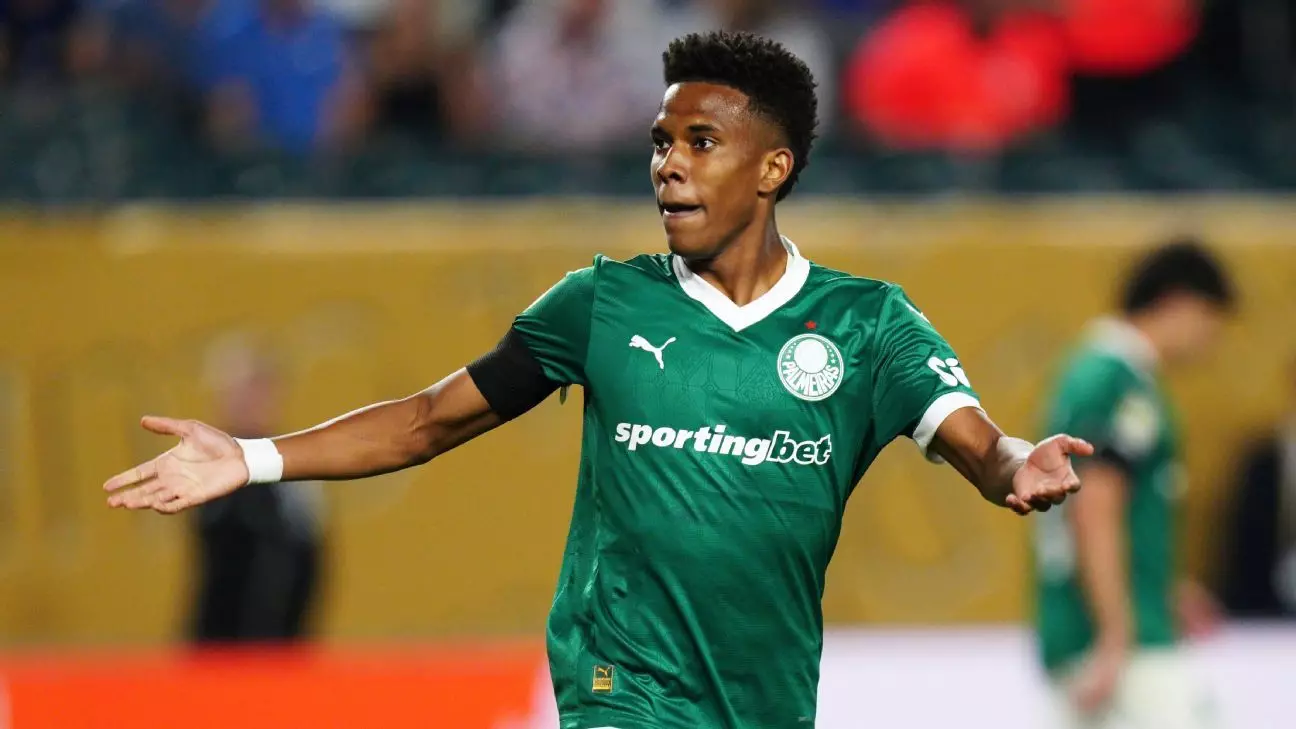Emerging talents such as Estêvão Willian encapsulate a new wave of football artistry—an exciting blend of raw skill, youthful exuberance, and the promise of future greatness. At just 18 years old, Estêvão has already demonstrated an impressive capacity to influence high-stakes matches, catching the attention of top European clubs like Chelsea. His journey from Palmeiras to the English Premier League symbolizes not merely a transfer of talent but also an emblem of the globalized football ecosystem that increasingly prioritizes youth development and international scouting. Yet, while his current prowess excites fans and experts alike, the true challenge lies in nurturing this potential into consistent excellence within a vastly different football culture and environment.
Understanding the Unique Challenges of Integration
Transitioning from South America to England is more than a mere change of club; it is a profound shift that affects every aspect of a young player’s life. Palmeiras’ coach Abel Ferreira astutely reminds Chelsea to “embrace” Estêvão and “take care of him,” recognizing the importance of emotional and psychological support in safeguarding his development. Adjusting to life under the often unpredictable English weather, the shorter daylight hours, and a more intense competitive culture can be overwhelming. These external variables can impact a player’s confidence, focus, and overall performance. For Chelsea, acknowledging these challenges should translate into targeted support initiatives—mental health counseling, cultural acclimatization programs, and family involvement—that help young players like Estêvão thrive beyond their technical capabilities.
The Responsibility of Club Culture and Mentorship
A recurring theme in the discourse surrounding young talents is the pivotal role of club culture in shaping their trajectories. Chelsea, with its storied history of nurturing young players, must now actively foster an environment of patience, guidance, and mentorship. The club’s coaching staff needs to go beyond tactical development, offering psychological resilience and contextual understanding. Maresca’s comment about the “perfect night” underscores the importance of positive reinforcement, but it also implies the necessity of long-term investment. Success won’t be immediate; it requires sustained nurturing—recognizing that mistakes are part of growth and that overprotection may hinder, rather than help. Chelsea’s ability to cultivate a supportive ecosystem will determine whether Estêvão matures into a consistent performer or remains a promising fleeting talent.
The Balancing Act Between Expectations and Reality
Media narratives, transfer investments, and fan excitement often amplify the pressure on young athletes. Estêvão’s recent display—scoring in a high-profile match—sets high expectations for his future. Chelsea must resist the temptation to elevate him prematurely, understanding that rapid development often breeds burnout or disillusionment. Ferreira’s candid advice about the physical and environmental differences between Brazil and England is a reminder of the importance of realistic expectations. Chelsea’s role is to safeguard Estêvão’s confidence bottleneck by celebrating his progress while tempering impatience with patience and strategic planning. This delicate balance determines whether future promise turns into sustained excellence or unrealized potential.
Nurturing Talent: Beyond Technical Skills
While Estêvão’s technical and physical attributes are evident, the true measure of his future success hinges on intangible qualities such as resilience, adaptability, and self-awareness. Young players need more than just tactical instructions—they require mentorship in managing success, coping with setbacks, and understanding their evolving role within a team. Chelsea has a unique opportunity—and arguably an obligation—to develop a comprehensive support system that includes sports psychologists, experienced mentors, and leadership opportunities on the pitch. Cultivating such qualities today could mean the difference between a fleeting star and a legendary figure in football history.
Final Reflection: The Long Road to Greatness
Ultimately, the journey of Estêvão at Chelsea exemplifies the complex interplay between raw talent and meticulously crafted development pathways. The club’s willingness to invest in his growth, combined with a nurturing cultural environment, will shape the trajectory of a promising career. Success in football is rarely about immediate impact; it is about laying down a foundation of trust, resilience, and continuous learning. As Chelsea navigates this process, the focus should remain on long-term sustainability rather than short-lived applause. The young star’s true potential will only be realized if the club’s strategy centers on holistic development—mentally, physically, and emotionally—crafting not merely a talented player but a well-rounded professional ready for the rigorous challenges of the modern game.

